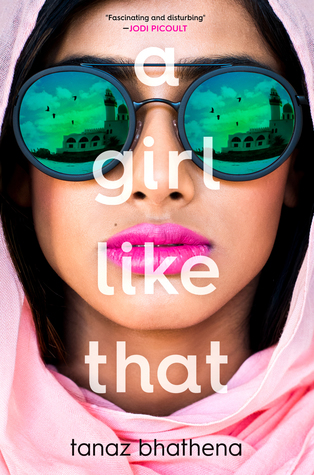Tanaz Bhathena’s debut novel “A Girl Like That”—which she describes as a “love letter” to girls everywhere in the afterword—follows Zarin and Porus, two teenagers living in Saudi Arabia, to their untimely deaths. Using the perspectives of the various spectators of Zarin’s life, Bhathena brilliantly redefines what it means to be in love and shows how oppression truly plays a part in how women define themselves. While the trope of a not-so-average girl as the envy of her school is nothing new, the subtle shift in perspective has readers rooting for characters they know will die. As this novel also explores the seemingly thin line between love and abuse, it handles issues we all face with complexity and graceful understanding.
There is nothing wrong with being a girl “like other girls,” but Bhathena nevertheless portrays the difficulty of being different through Zarin’s dating life. Because Zarin is viewed as a girl like no other, she is constantly pursued and other girls either want to be her or for her to disappear. Bhathena implies through this narrative, that the underlying issue is when girls turn on one another under the strain of the male gaze. In contrast is Mishal, an average girl who starts an online gossip blog to report on Zarin and her scandalous behavior. Through Mishal’s plotline, Bhathena shows the pernicious way women treat each other: The story reveals how girls can resort to hatred or a certain ignorance for one another instead of communicating with each other due to pressures placed by the male gaze. When Zarin and Porus die, Mishal tries her best to remember a girl she could not understand and a boy she barely knew.
The characterization of Zarin appears cliché at first, but the layers of her personality prove that she is more than one-dimensional. Bhathena, by masterfully weaving multiple perspectives, forces readers to delve into a gray sea of uncertainty in order to grasp the brutality of parental authority and toxic masculinity that is both encouraged within groups of men and by women themselves. Zarin—like many—grapples with these difficulties and is socially and physically punished for not wanting to have sex with the men she dates. However, sex is expected of her and can thus be nonconsensual at times. Here, Bhathena’s ability to twist dialogue comes brilliantly into play. Bhathena writes, “‘It’s okay, Zarin,’ [Porus] whispered. ‘Relax.’” Without context, this seems to be a soothing and gentle gesture. However, he is actually assaulting Zarin. The novel challenges the complexities in relationships and the trust people put in one another.
This novel lives up to its promise to deliver a “high-stakes romance,” and it does in the most unconventional and unexpected way. The love in this book is, at times, platonic. However, Bhathena has written such deep and insightful character progression that adorable friendships and “high-stakes romances” seem to fold into one. She boldly merges Zarin and Porus’ storylines and readers wish desperately for a happy ending that will never be. Porus is the epitome of lovestruck when it comes to Zarin, but this initial infatuation shifts to become softer and more wholesome. Though Porus loves her unconditionally, Zarin does not completely reciprocate his feelings. When she implies that she may never love him the way he loves her, one of the most beautiful and relatable lines emerge: “The sun dipped into the ocean, staining the sky red. It would be time to take her home soon. Inside my throat was something that felt like a giant ball. I wondered if it was my heart.” In return, Zarin feels the freedom to love him the way she wants to, rather than the way that is expected of her, which is what makes this romance unlike any other.
This novel starts off with the ending, so readers are fully aware of the plot’s trajectory. However, the plot is so wonderfully written that it is easy to get lost in the complexities of these teenage characters and what it means to be “a girl like that.” Although the book initially feels like a cliché, the premise of Bhathena’s first novel proves that people have a long way to go to truly understand one another.
—Staff writer Anum Shafqat can be reached at anum.shafqat@thecrimson.com
Read more in Arts
Zadie Smith on Language and Life at Coolidge Corner TheatreRecommended Articles
-
Fact and Rumor.Prof. Chas D. Morris of Johns Hopkins died Sunday. There are now fifteen candidates for the university crew. The Cornell
-
Peach, Chocolate, and Lime The Three Famous Flavors of RadcliffeEvery Girl Is Put in Her Place Ask any Cliffie to tell you what type of girl goes to her
-
 Artist Spotlight: Mary-Grace R. Reeves
Artist Spotlight: Mary-Grace R. Reeves -
From the Bookshelves: War, Peace, Love, LifeLove, life, and death are all seemingly intertwined in a special way in this novel, and while I felt the losses heavily, I can acknowledge the beauty found in the love revealed by these losses.
-
 Drinky Drink: "Girl Drinks"
Drinky Drink: "Girl Drinks"














